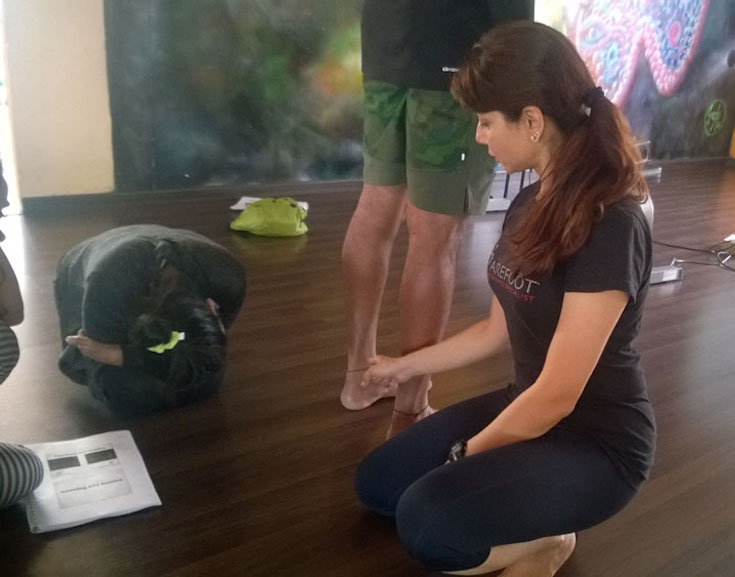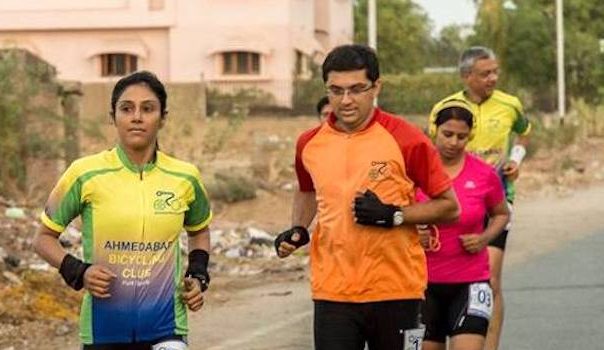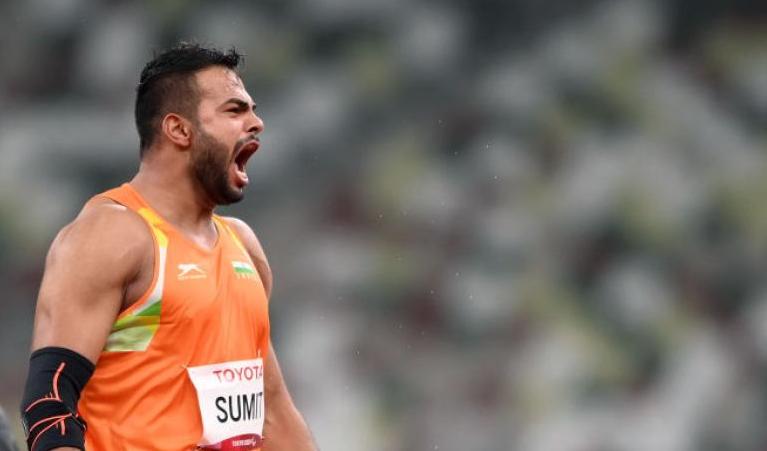Her hands are gesturing much of the time and her eyes are very much in the conversation. As indeed, they would be since she has been a dancer nearly all her life. The words that flow from Vani Pahwa’s heart stem from two decades of advocating functional fitness for athletes, professional and recreational, and corporates, and working as a rehabilitation therapy specialist.
The ease with which she speaks of the movement of the body and the stillness of the mind is simply stunning. “The first is easier to target and the second is elusive,” she says, matter-of-factly, championing fitness training for life rather than just events. “I found that my own physical movement contributed a lot to my growth as an individual as well as the catharsis.”
Having started to learn classical dance forms at the tender age of five, functional movement had been a huge part of her life. She says dancing defines a huge chunk of who she is. “Dance has always been my soul curry – no matter what else I was doing, working for an IT company or running my own internet company,” says the graceful Mohiniattam exponent.
A great deal of learning happened when movement went missing as a result of mishaps, once tumbling down an office staircase and tearing a meniscus at another time. She found the medical guidance taking movement away from her. “The ‘you-may-not-be-able-to-this-ever-again’ line of thinking was taking precedence. I had to figure out a way to regain that,” she says, recounting her journey in the world of functional fitness.
“It became clear to me that the body is a series of links in a chain. And when one link becomes weaker, you strengthen that. That is my approach to fitness and that is how I got into studying fitness for myself. It was my own journey so that I could get back to what I had been doing. It surprises me that people come and say they are inspired,” Vani Pahwa says.
The framed certificates are milestones of her story in functional fitness; large motifs on one wall lend a wonderfully inspirational ambience too but in the spacious studio, set in the basement of her well-appointed home, one small poster screams for attention. “Fit is not a destination but a way of life,” it reads. No visual distracts from the words in white against the black background.
Vani Pahwa gives some simple examples to illustrate how she employs this philosophy. “If I have to drive to a meeting and find less crowded parking some half a kilometer away, I would park and walk. I find it silly that people are ready to drive around until they can park exactly in front of the shop they want to go, no matter they lose time in finding that slot,” she says.
“Also, I encourage people to do the chores in the house. It is no mean task but it is one of the best ways to attain functional fitness,” she says, aware that functional fitness means different things to different people. “Obviously, it is different for athletes who are competing at the higher levels than it is to someone who wants to stay out of a wheelchair for a longer time.”
Clearly, she has embraced a holistic approach to fitness – speaking about physical, mental, emotional and spiritual fitness as four pillars of wellness. “It comes a bit naturally to me to be able to gauge a person in the first conversation. And in understanding where his or her focus is and what he or she is silently asking for without even realising it,” she says.
“Of course, when you want to draw out performance from a person, you need to understand that person first. That has always been my philosophy, honed as a result of my being a product of the guru-shishya tradition. It dictated my personality from being a child to young girl to womanhood to motherhood, each experience adding another dimension,” she says.
Vani Pahwa found a whole new layer to her persona when she started running a number of half marathons. “I wanted to see what it takes to run a distance. As a rehab expert, I needed to understand what the body feels when people run long distances. I immerse myself in the whole process – what it takes to be a runner, a swimmer or a cyclist. But I don’t snap my connection with all that I have done before,” she says.

She is genuinely concerned that most want to get to their fitness goals too fast, leading to attrition. “The journey to get where you want to be has got compounded by social media. We are not living from one experience to another but from one FB post to another. We are in a hurry to arrive. Where is the inclination, the wherewithal and effort for the journey?” she asks. “That hysteria should not become your life. We are still far from realising that it is not about shortcuts.
“The rage of the past few years has been to take up challenges and post on Social Media. Can we challenge ourselves to do a solid workout for 21 days and not post about it? It is nice to be a part of something that gives instant gratification but when it starts colouring motives for doing things, we need to introspect. We are working out for ourselves; not to garner ‘Likes’,” she says.
Having written countless newspaper columns, Vani Pahwa hopes the fitness industry will declutter in time and draw from India’s rich heritage. “There are any number of fitness gurus now and our fixation for constantly looking outwards must change. Of course, the new generation of Indian trainers understands the importance of going deeper and presenting it to clients. But they don’t look within our own culture because it has not been documented in modern terminology.”
She cites Yoga as an example. “It is time-tested and relatively richer than other forms of engagement since it taps in to all four segments. We need to pick up the underlying philosophy. And that can happen if one is totally engaged, focused on the deeper self and eliminates all else from the mind,” she says.
This insatiable student of the human body in motion insists that an hour in the gym should not be a justification for a sedentary lifestyle across the other 23 hours. “There is so much we can do during the day. Whatever we invest in the earlier years will make old age that much better and make us less dependent on others to make life easier. That should be reason enough for us to work on our fitness.”
It is unlikely anyone can argue against such a simple yet powerful line of thought from this votary of the movement-of-the-body-and-stillness-of-the-mind who speaks the language of a monk.
This piece was written for zevenworld.com in August 2017



